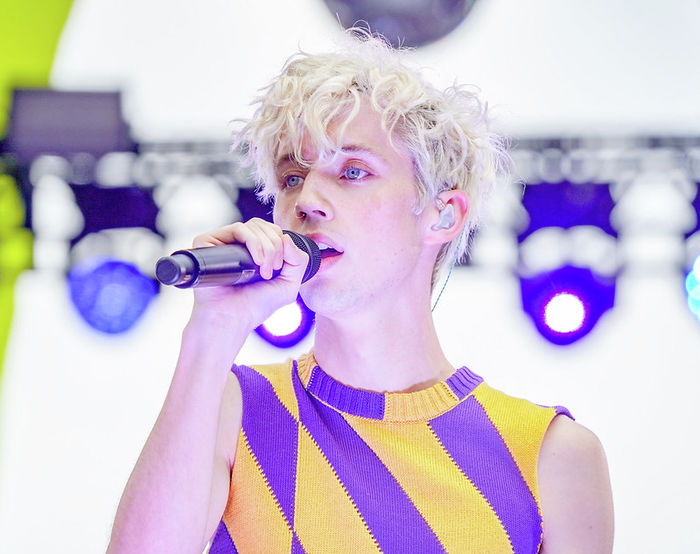How Cambridge’s queer music scene finally came out
Oliver Cooney explores the rise of the Cambridge gay night out

Coming to Cambridge from England’s gay capital (Manchester, obviously), I feared my beloved queer music would be lost among ‘Gold Dust’, ‘Titanium’, and whatever other 2010s track Rumboogie has on replay. My first night out proved me wrong. While Lola’s drip-fed me Dua Lipa once in a blue moon, Glitterbomb overflowed with gay classics. It offered a space to soak in Britney and Beyoncé without having to tone down my singalong. Yet in my three years, Cambridge’s queer scene has come a long way, now offering far more than cheesy 00s pop.
At that point, Glitterbomb was Cambridge’s only frequent queer event, but allegations of racist staff meant many students needed a new home for their queer anthems. This was the origin story of The Queer Get Down. Hosted at Mash, QGD was founded “to create a safer space … for queer people of colour by queer people of colour”. These were the words of QGD’s organisers, who told me how important music is for queer identities. “It’s about feeling comfortable in your own skin. Queer artists have made music that made me feel that way.”
That emphasis on expression is certainly felt in the music, as the organisers expand beyond “the mainstream music that’s considered queer”. While Glitterbomb’s Top 40 hits might keep some satisfied, it was hearing SOPHIE, Arca, and Shygirl that kept me coming back to QGD. But their playlist is by no means limited to artists who are queer themselves. “If the DJ is playing afrobeats and I’m dancing with my queer friends, that’s queer to me,” one organiser proudly told me.
“It feels more special to DJ for people who actually need a safe space … it feels more like a community”
To achieve that broader range, QGD platforms queer DJs of colour, including the frequently featured Lorna. Over her six years as a medic, Lorna has worked almost every event in Cambridge, but told me she prefers queer nights. “It feels more special to DJ for people who actually need a safe space … it feels more like a community.”
As for how the scene has changed, “so many big DJs used to come,” Lorna said, but this was destroyed by the pandemic. Nonetheless, having seen Lorna in action, the scene is in safe hands, even with such a broad category as queer music. “I try to be as inclusive as possible in one set” she tells me. “If I want to get more people [on the dancefloor], I’ll go for noughties stuff. Once people are more warmed up, then I’ll move into stuff that’s a bit more left field.”
Catering to the eclectic tastes of queer people is especially tough at Lorna’s favourite event, GayDar. The postgrad-focused night is held on the first Saturday of each month in Darwin College bar, and organiser, Joe, tells me their music is different. “Being older either makes or breaks your music taste,” he says, “so you can’t really get away with just a generic gay-ish playlist.” Instead, GayDar spans the genres, including disco, funk, and hyperpop.
“There would not be modern electronic music without the pioneering influence of the queer community”
But it isn’t just students we have to thank for the expansion of Cambridge’s queer music scene. Collaboration between Cambridge Junction, Wysing Arts Centre, and a handful of Cambridge-based creatives birthed Club Urania, a revolutionary space for queer Cambridge natives. The project emerged from “frustration at the lack of queer spaces in Cambridge,” the organisers told me. To combat this, they established a space dedicated to queer self-expression, be that through intimate performance art or large-scale club nights. “There would not be modern electronic music without the pioneering influence of the queer community,” the organisers say, as they encourage queer people to see music not just as noise, but as a tool for self-expression.
Yet the most recent expansion of Cambridge’s queer music scene was student-led with RAID, launching at Mash in January. For RAID’s organisers, music was at the heart of their planning. “No matter how much effort with the decorations and the condoms,” the organisers told me (a proud recipient of a RAID-branded condom)“if there’s bad music, no one’s coming again.”
To ensure they did get a returning crowd, the organisers encouraged variety in their DJ sets to “throw a twist on some of the classics of queer nightlife”. With a committee diverse in both heritage and music taste, it was important for them to find DJs that straddled all sides of the queer music kaleidoscope, including going “for the more unexpected”. With RAID happily alternating their Sunday nights with QGD’s every-other-Monday, it isn’t hard to find queer music at least once a week.
With that, Cambridge has grown to carry a glimmering queer music scene of its own, even if it may never come close to the infamous scene of my hometown. As a fresher, I praised the upgrade to my nightlife that came with returning to Manchester. Now, staring down the barrel of returning home after graduation, I think I’ll miss it. Perhaps swapping King’s Parade for Canal Street won’t be so much of an upgrade after all.
 Comment / Cambridge students are too opinionated 21 April 2025
Comment / Cambridge students are too opinionated 21 April 2025 Interviews / Meet the Chaplain who’s working to make Cambridge a university of sanctuary for refugees20 April 2025
Interviews / Meet the Chaplain who’s working to make Cambridge a university of sanctuary for refugees20 April 2025 News / News in brief: campaigning and drinking20 April 2025
News / News in brief: campaigning and drinking20 April 2025 Comment / Cambridge’s tourism risks commodifying students18 April 2025
Comment / Cambridge’s tourism risks commodifying students18 April 2025 Comment / Cambridge’s gossip culture is a double-edged sword7 April 2025
Comment / Cambridge’s gossip culture is a double-edged sword7 April 2025






